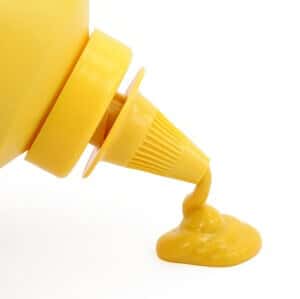
What Is the Science Behind Home Remedies?
Over the years, we have heard about scores upon scores of home remedies for everything from arthritis to warts. Some make sense intuitively, while others seem silly. Most have never been subjected to scientific scrutiny. Is there any science behind home remedies?
We may never know the full answer to that question, but occasionally we learn years later that there are scientific explanations. Several years ago, as we began to learn about transient receptor potential (TRP) channels in cells, a number of seemingly unrelated and otherwise inexplicable home remedies began to fall into place. Why does a spoonful of yellow mustard stop muscle cramps so quickly? How does pickle juice work for the same problem? Could a bar of soap under the bottom sheet really help prevent nighttime leg cramps?
What Is the Science Behind Home Remedies?
One of the appeals of home remedies is that you can do your own experiments at home. One mother wrote to us about testing the efficacy of putting Vicks VapoRub on the feet to calm a nighttime cough. Both her twins had bad colds, but she had only enough Vicks to treat one of them. The other twin coughed all night, while the treated twin slept soundly. The following night, having acquired more Vicks, she treated the other twin and left the originally-treated girl untreated for that night as part of a natural experimental control. Once again, the child who had been treated didn’t cough, and the untreated one did. It’s too small to be considered a scientific experiment, yet she proceeded scientifically in a spirit of inquiry.
N of 1 Experiments on the Science Behind Home Remedies:
It is always interesting to read about home remedies. What you really want to know, most likely, is “Will it work for me?” The only way to find out is to conduct an N of 1 experiment: try it. The N stands for the number of people in the trial–just you. You’ll get more information and your story will be more believable if you try to control as many factors as possible.
You may not end up with an explanation, but you’ll know whether or not the remedy is reliable for you. We have discussed a number of remedies that work for so many people that we feel we can count on them even though we still can’t explain them. Coconut (in cookies or on its own) seems to be good for stopping diarrhea. Soy sauce on a burn seems to ease the pain and reduce the redness. Do you have favorite home remedies that you rely on?
Here are a few studies you might find interesting on ginger, cinnamon and thyme.
What Are Your Questions About the Science Behind Home Remedies?
On this live show, we welcome your questions about home remedies. You can reach us by email at radio@peoplespharmacy.com, or call between 7 and 8 am EST on Saturday, November 10, 2018: 888-472-3366.
This Week’s Guests:
This week, we revisit briefly some interviews we have done previously with renowned experts.
Bruce Palmer Bean, PhD, is the Robert Winthrop Professor of Neurobiology at Harvard Medical School. He helped develop HotShot.
Tieraona Low Dog, MD, is an internationally recognized expert in the fields of integrative medicine, dietary supplements, herbal medicine and women’s health. Her latest book is Fortify Your Life: Your Guide to Vitamins, Minerals and More. For more information, see her website: drlowdog.com
Listen to the Podcast:
The podcast of this program will be available the Monday after the broadcast date. The show can be streamed online from this site and podcasts can be downloaded for free.

